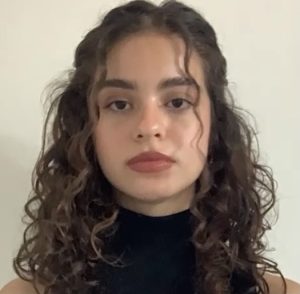 Abetzi Vazquez Ochoa, COL ’25, Houston, Texas
Abetzi Vazquez Ochoa, COL ’25, Houston, Texas
This summer, I was lucky enough to work in the Marks Lab of the Children’s Hospital of Philadelphia and the Department of Pathology and Laboratory Medicine, where I explored the different variants of Hermansky-Pudlak Syndrome (HPS).
I was fortunate to have been first introduced to my primary investigator, Dr. Michael Marks, through the PennFERBS fellowship program in the fall of 2021 (also known as my first semester of college). Suffice to say that I felt very incompetent and intimidated at first, but he and the rest of the lab, accepted me with open arms. For that, I will be eternally grateful because not only did they allow me to conduct research, but they were understanding of my blunders and lackluster attempts at analyzing my results.
HPS and its variants are a hereditary disease that leads to oculocutaneous albinism, prolonged bleeding, pulmonary fibrosis etc., and the Marks Lab studies its impact on organelle biogenesis using mice melanosomes as a model. My projects mainly focused on revealing the role of specific kinases and genes needed for the successful pigmentation of melanosomes. I began really conducting experiments in my spring semester. It built off my mentor, Yueyao Zhu’s, research to hopefully answer the question of whether the AP-3 complex was involved in recruiting important cargo onto melanosomes. So, when I came back for the summer, I fully expected to resume that half-finished project, only to be assigned two projects that were similar only through the vagueness of their goals. This inherent ambiguity granted me the ability to move slowly – making room and time for me to fully comprehend the complexities of the BLOC-2 complex and TMEM138 gene.
I came into Penn debating graduate and medical school, and I have somehow come out of this summer experience even more conflicted. It has been both a vice and a virtue because despite Penn’s rich opportunities — it seems as if it has only helped to add more confusion to my career crisis.
Moreover, without the support of my lab or the financial assistance offered by Penn Career Services, I would not have been able to explore beyond or enrich my (previously) holistic-based curiosity of illness and disease.
This is part of a series of posts by recipients of the 2022 Career Services Summer Funding Grant. We’ve asked funding recipients to reflect on their summer experiences and talk about the industries in which they spent their summer. You can read the entire series here.




